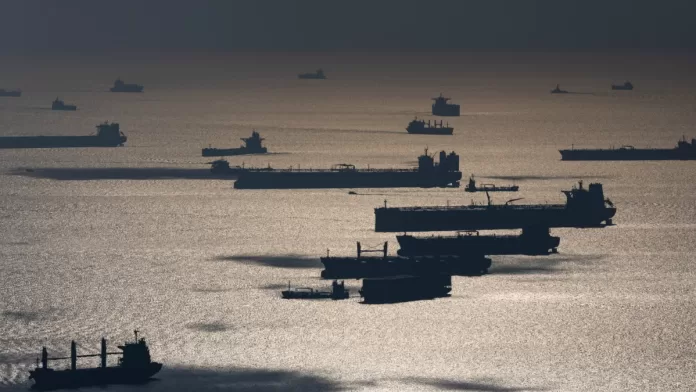Australia has taken a major step in increasing pressure on Russia by targeting its so-called “shadow fleet” of oil transporters. For the first time, the Australian government has imposed sanctions on 60 ships that help Russia secretly move oil and other goods, avoiding international restrictions.
This announcement was made by the Office of the Australian Foreign Minister, Penny Wong. She said the sanctions were introduced alongside similar actions by countries like Canada, the United Kingdom, and the European Union. These ships are believed to be part of Russia’s wider effort to keep earning oil profits even while much of the world has placed heavy sanctions on it due to its invasion of Ukraine.
Since the war began in 2022, Australia has issued more than 1,400 sanctions against Russia. But this new step marks a turning point—targeting the very vessels that help Russia sneak its oil onto the global market. These shadow fleet ships often hide their real location, turn off GPS systems, or transfer oil between vessels mid-sea to avoid detection.
The purpose of these new sanctions is to block Russia from making money off oil sales. Oil is one of Russia’s biggest sources of revenue. That money, Australia and its partners say, is being used to fund military operations.
The European Union Cracks Down
Australia’s move follows a much larger action taken by the European Union just weeks earlier. In what has been called the EU’s largest-ever sanctions package against Russia’s shadow fleet, 189 new ships were added to its blacklist. That brings the total number of Russian-linked vessels banned from EU ports and services to 342.
The EU also went after companies that help move Russian oil around the world. These include shipping firms based in the United Arab Emirates, Turkey, and Hong Kong. Many of them are accused of helping Russia find new ways to sell oil and avoid restrictions. A major Russian insurance company was also sanctioned. Since ships often need insurance to sail legally and safely into ports, this move could block many of these vessels from operating.
The EU’s new sanctions package did not just aim at ships and companies—it also tried to shut down entire systems of support that allow Russia to keep oil flowing in secret. These sanctions include freezing assets and banning financial support.
The goal is clear: make it much harder for Russia to earn money that could fuel its war effort, especially when that money is coming from hidden oil deals.
Canada Joins the Effort
Just days before Australia’s announcement, Canada added its voice—and its own list of new sanctions. During the G7 summit, Canadian Prime Minister Justin Trudeau presented new measures against Russia’s shadow fleet. The Canadian government sanctioned more than 200 ships believed to be helping Russia evade sanctions.
Along with these vessels, over 40 companies inside and outside Russia were also targeted. These companies are suspected of helping Russia move oil or provide services that allow the shadow fleet to operate. Some offer ship maintenance, financial backing, or other forms of support.
While Australia’s 60-ship sanction list is its first action against the shadow fleet, it shows growing international coordination. Countries are working together more closely to crack down on ships, companies, and individuals involved in moving Russian oil through backdoor channels.
The coordinated steps from Australia, the EU, and Canada aim to tighten the net around Russia’s oil business and block the hidden paths it uses to keep funds flowing to its military.
